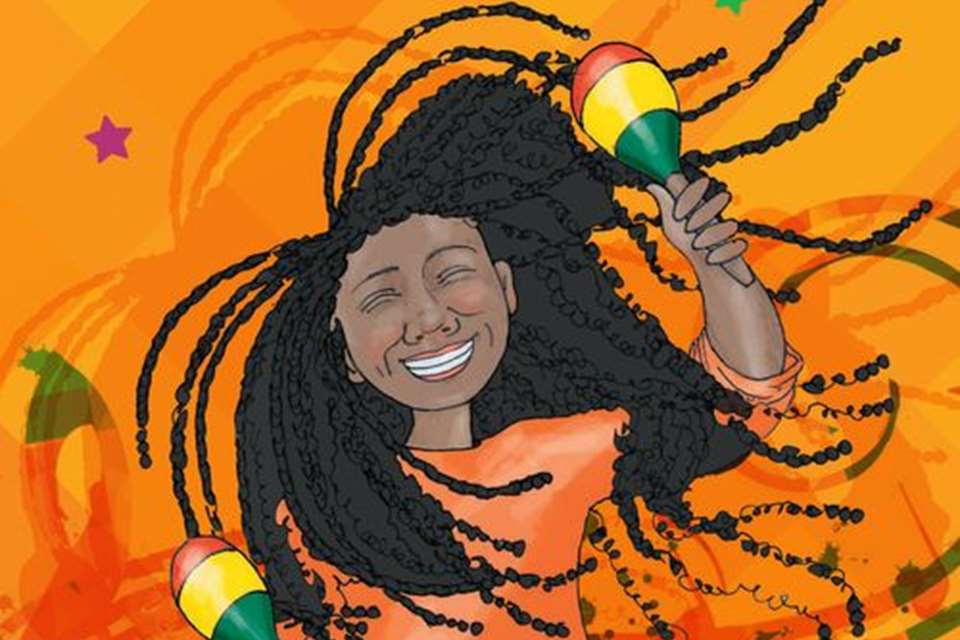Book reviews: Listen & Celebrate Key Stage 3
Eleanor Rashid
Wednesday, November 1, 2023
Eleanor Rashid reviews the KS3 resource Listen & Celebrate, published by Collins.

Nathan Holder and Rachel Shapey have set out on a remarkable journey in music education with their latest publication, Listen & Celebrate Key Stage 3. This comprehensive resource is meticulously designed to enrich and diversify the music education experience for Key Stage 3 students, typically aged 11 to 14.
Listen & Celebrate KS3 not only offers a rich exploration of fundamental musical elements but also serves as a platform for masterclasses led by accomplished composers from diverse cultural backgrounds. Its ambition is to provide students with a multicultural and genre-spanning journey, thus moving beyond the confines of Western classical music.
The first notable aspect of Listen & Celebrate KS3 is its distinctive and visually captivating cover, reminiscent of the first book in the Listen & Celebrate series for primary level. The cover's unique aesthetics serve as a prelude to the rich and engaging content within. The book's introductory sections provide valuable insights into the evolving pedagogical philosophy of music education. It emphasises the need to reimagine teaching approaches advocating for greater authenticity in the learning process.
One of the key challenges in curating a resource like this is selecting compositions that offer diversity in style, gender representation, sexual orientation, disability awareness and ethnic influences. Listen & Celebrate KS3 rises admirably to this challenge, presenting a carefully curated collection of 15 compositions. These compositions span a wide spectrum of musical genres, including north- and west-African rhythms, contemporary Iranian folk with mixed genders, spiritual and avant-garde jazz, and contemporary classical music. It also features Chickasaw-inspired contemporary classical pieces, Hindustani classical, reggae, rock, video game music, jazz standards, UK drill, film music and contemporary a cappella. This comprehensive selection ensures there is something for everyone, and students are explosed to a rich tapestry of musical traditions and styles.
The concept of ‘flow’ in music is a relatively unexplored territory in traditional music resources. However, Listen & Celebrate KS3 bravely takes on this challenge, providing a fresh and accessible perspective on the intricacies of music-making. An excellent example of this is the in-depth analysis of the drill track ‘Guillotine’ by UK artist Psychs. This analysis demonstrates how varying rhythmic patterns and pitch modulation can significantly enhance the flow of a musical piece. It effectively dispels preconceived notions that rap music is solely characterised by lyrical impropriety. The book further delves into the concept of ‘panning’, encouraging listeners to discern intentional artistic choices made during the production process, thus deepening their appreciation for the art of producing.
One of the most poignant inclusions in Listen & Celebrate KS3 is a segment on composition techniques employing Logic Pro, a sophisticated digital audio workstation (DAW). What makes this inclusion truly exceptional is the spotlight on technology that enables communication through eye movements. The heartwarming story of Jason Beckner, who continues to compose music using this technology following his ALS diagnosis, underscores the profound potential of technology to impact and assist individuals with disabilities in their musical pursuits. It is a testament to the inclusive spirit of this resource.
The book also offers an illuminating exploration of the jazz standard ‘Afro Blue’. This exploration spans three distinct versions by Mongo Santamaria, Robert Glasper and Alina Bzhezhinska. By dissecting elements like improvisation, call-and-response, and solos across the different renditions, it provides valuable insights into the timeless and expressive nature of jazz standards.
Beyond these highlights, Listen & Celebrate KS3 offers a treasure trove of musical gems. Cassie Kinoshi's ‘Wake (For Grenfell)’ and Caroline Shaw's vocal composition masterclass ‘Allemande, Partita for 8 Voices’ stand as powerful examples of contemporary compositions. The book also introduces readers to the captivating world of Hindustani classical music through Ulhas Bapat's ‘Raga Bhupali’. It provides a clear and comprehensible introduction to the tal and tintal rhythmic structures which are integral to the genre, aided by informative illustrations.
One of the unique qualities of Listen & Celebrate KS3 is its inclusivity and adaptability. It presents ‘Toast’ by Koffee, a composition that stands out for its adaptability across various age groups, from Early Years to KS3 and beyond. The book offers innovative approaches to understanding musical concepts such as syncopation. Through dance and the internalisation of rhymes, students can grasp these concepts with ease, fostering creativity and engagement. These approaches can serve as the foundation for songwriting and music production activities, empowering students to create original music or stage performances. What sets this book apart is its accessibility and adaptability across generations and abilities, promoting inclusivity and collaborative learning experiences.
In conclusion, Nathan Holder and Rachel Shapey's creation, Listen & Celebrate KS3, is a profound and pivotal resource for music educators. It represents a paradigm shift in music education, offering fresh, innovative and engaging teaching approaches. This book, with its rich content and adaptable activities, has the potential to reshape the music education landscape, making it more inclusive, diverse and enjoyable. It is an invaluable resource for educators seeking to inspire and engage their students, and it deserves the highest recommendation. With the Listen & Celebrate series, Holder and Shapey have made an indelible mark on the future of music education, and its impact will resonate for generations to come.




